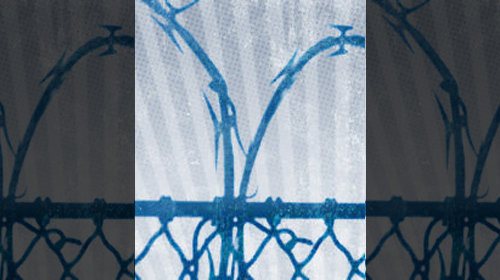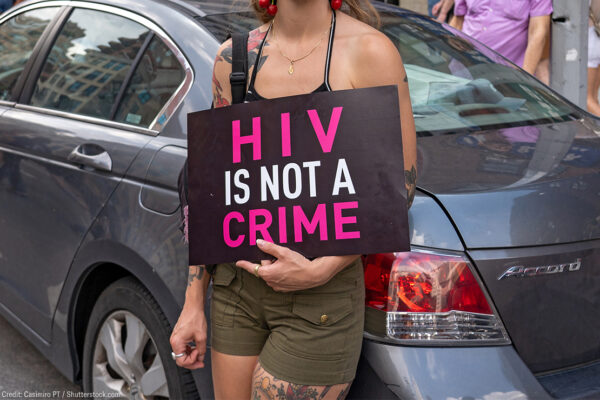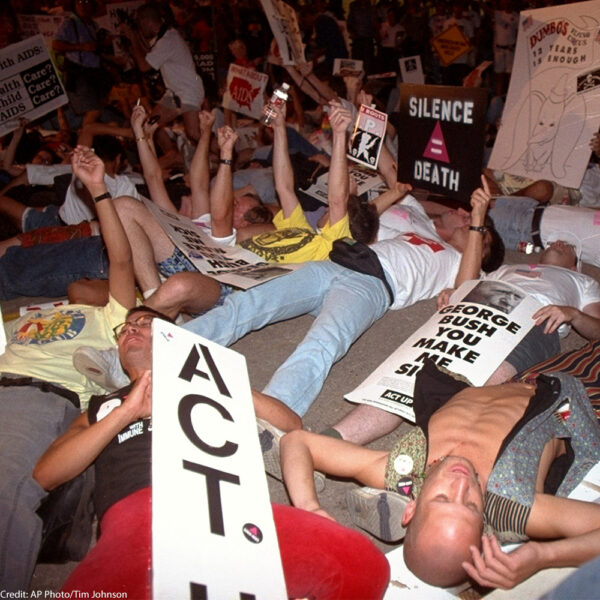
Alabama segregates all prisoners with HIV, and houses them separately from all other prisoners – it’s an HIV ghetto. As soon as you walk into Limestone Correctional Facility, the prison where Alabama houses all male prisoners with HIV, you know who has the virus: they are forced to wear a white armband day and night.
TIMELINE
The Fight Against Segregation of Alabama Inmates with HIV »
The Alabama Department of Corrections automatically excludes all prisoners with HIV from a host of rehabilitative and vocational programs that ADOC offers to all prisoners who don’t have HIV – including trade schools, work release jobs, residential drug-treatment programs for prisoners struggling with substance abuse, and programs for prisoners suffering from serious mental illness. Prisoners with HIV are even barred from the faith-based dormitory and the dormitory for seniors.
Segregating prisoners living with HIV is a holdover from the earliest days of the HIV/AIDS epidemic in the 1980s. Back then – when transmission risks weren’t fully understood, there was no effective treatment, HIV was a death sentence, and people with HIV were treated like pariahs—most prison systems experimented with HIV segregation. Today, however, the Centers for Disease Control oppose HIV segregation as irrational and counter-productive, and every state in the nation has repudiated HIV segregation – except for Alabama and South Carolina.
Starting Monday, the ACLU will be taking on Alabama’s HIV segregation policy in a month-long trial in federal court in Montgomery. The case, Henderson v. Thomas is a class-action lawsuit brought under the Americans with Disabilities Act.
When I hear Alabama prison officials attempt to justify why they discriminate against prisoners living with HIV, I feel like I’ve fallen into a time warp.
The officials insist that their shameful policy of segregating prisoners living with HIV, which keeps those prisoners from accessing valuable services and programs they desperately need, is “beneficial” for the prisoners. In fact, the policy is driven by profound ignorance, fear and bias.
Alabama also insists they are providing “separate but equal” programs for these prisoners. Alabama has a lot of experience with “separate but equal.” That catchphrase governed how its schools were run until a half-century ago. Of course, schools for Black students were anything but equal.
The ACLU has been successfully fighting HIV discrimination against prisoners for more than 25 years — virtually from the beginning of the HIV/AIDS epidemic—and especially in the Deep South, where HIV shame and stigma is most deeply rooted. Alabama is now one of the last two holdouts.
It’s been a long, long time coming—but we believe a change is going to come.
Learn more about HIV/AIDS discrimination: Sign up for breaking news alerts, follow us on Twitter, and like us on Facebook.




